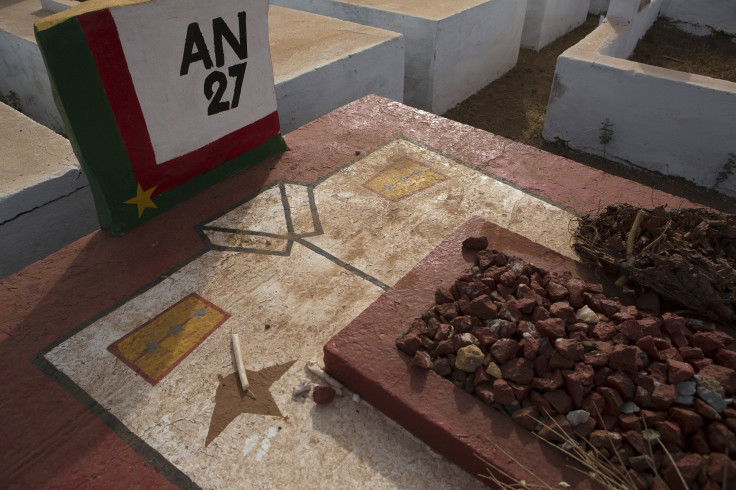Burkina Faso Begins Exhumation Of Thomas Sankara's Grave Nearly 30 Years After His Death

Burkina Faso on Monday began the exhumation of a grave thought to hold the remains of its former president Thomas Sankara, nearly 30 years after the revolutionary leader was assassinated in mysterious circumstances. Sankara’s relatives have petitioned the government of the west African country for years to examine the remains, to confirm whether it is the grave of Sankara, who was killed in a 1987 coup that saw his former ally Blaise Compaore take power for decades.
Sankara, a Marxist who opposed French colonial rule, took power in a 1983 coup and brought several reforms during his four-year reign. He doubled the number of children in schools, reduced child mortality and redistributed land and wealth.
Sankara also renamed the country from the French title of Upper Volta to Burkina Faso, which means “the land of upright men.” His reputation as a leader, who strongly opposed corruption and imperialism, as well as his trademark beret, earned him the nickname of "Africa's Che Guevara."
Sankara was ousted in a 1987 coup led by Compaore, who stayed in power until 2014 and blocked any attempts to exhume Sankara’s purported remains. He also pursued a policy of “rectification” that rolled back Sankara’s egalitarian policies. Compaore himself was ousted after massive street protests last year.
Compaore had long been suspected of playing a role in Sankara’s death, but he had always denied this, claiming that the "facts are known" and he had "nothing to hide,” BBC reported.
The testimony of Miriam Sankara, the former leader’s widow, was heard for the first time in a court in the capital of Ouagadougou last week. The court confirmed it had reopened a 1997 complaint Miriam had filed for the investigation into her husband's death, claiming that his remains had been hidden and certain documents forged.
Interim President Michel Kafando said last year that Sankara’s remains would be examined "in the name of national reconciliation," according to the Associated Press.
On Monday, hundreds of people reportedly gathered outside the cemetery as the exhumation of Sankara and 12 of his colleagues began, but security forces blocked their entry.
"We are worried. What if these are not the bodies of the people who are supposed to be in these graves?" civil society activist Arouna Sawadogo said, according to Reuters. "If we open the supposed grave of the president of Burkina Faso and it is not him, what will happen?"
Sankara’s sons, Philippe and Auguste, have provided DNA samples that investigators can use to verify the identity of the remains. However, experts reportedly warned that definitive identification could take weeks.
© Copyright IBTimes 2024. All rights reserved.



















